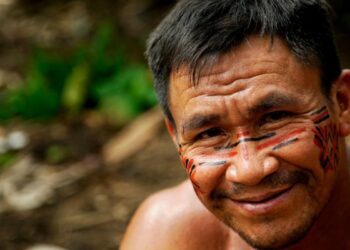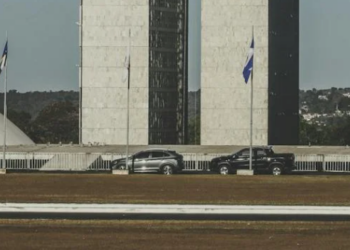by PublicABCP
Translated and reviewed by Matheus Lucas Hebling
The dossier Climate Justice, International Organizations, and Cooperation: Challenges for the 2030 Agenda in Brazil offers an interdisciplinary exploration of the challenges surrounding climate justice in the country. Released in 2024 and organized by Denise Vitale (Federal University of Bahia – UFBA) and Danielle Hanna Rached (University of São Paulo – USP), the publication situates the topic within the global climate emergency, characterized by increasingly frequent extreme weather events that deepen inequalities and further expose vulnerable populations.
The dossier examines how Brazil, amid its international commitments and the UN’s 2030 Agenda, can move forward with climate policies that integrate social justice and sustainability. It underscores the need for cooperation among local and international actors to meet these complex goals.
The publication includes an interview with Adriana Ramos, policy advisor and member of the Strategic Management Council of the Instituto Socioambiental (ISA), as well as eight articles that provide a detailed overview of the multiple actors and governance levels involved in climate action. Topics range from oil exploration in the Amazon and Indigenous women’s advocacy, to the importance of coordinated actions in achieving the Sustainable Development Goals (SDGs).
Among the standout contributions is the article International Cooperation for Development by Germany and the United Kingdom in the Brazilian Amazon: An exploratory analysis of the environmental agenda and gender issues, which investigates the role of these countries in the Amazon and the intersection of environmental and gender concerns, particularly the influence of the private sector on SDG outcomes.
In Child and Youth Climate Justice: The impact of the climate crisis on children and adolescents and General Comment No. 26 of the UN Committee on the Rights of the Child, the authors analyze how climate change affects the rights of young people—especially Indigenous children—drawing on the latest UN recommendations.
The dossier also addresses climate migration in the Amazon, highlighting the ongoing emergency and the challenges faced by organizations like the International Organization for Migration (IOM) and the UN Refugee Agency (UNHCR) in protecting climate migrants in the region.
In Climate Change and Gender: Insights from the 2nd Indigenous Women’s March, the authors explore the leadership and advocacy of Indigenous women in the face of the climate crisis, while the article Energy Transition in Dispute within the Brazilian State: Political-bureaucratic coalitions and oil exploration in the Amazon River Basin investigates the political divides over oil drilling in the Amazon and the competing coalitions shaping the debate over environmental and social impacts.
The dossier offers a significant contribution to the climate justice debate, emphasizing the urgent need for inclusive, equitable, and sustainable policies and research to tackle the climate crisis. Across its contributions, it highlights the importance of strong international cooperation and inclusive national policies—particularly those that prioritize socially vulnerable groups.
Framing climate action through the lens of the Sustainable Development Goals and the principle of shared responsibility, the dossier encourages the advancement of a climate agenda that integrates local and global perspectives in the pursuit of justice and equity in Brazil’s response to the climate crisis.
About the Editors
Denise Vitale is an associate professor at the Institute of Humanities, Arts and Sciences Prof. Milton Santos (IHAC) and a permanent faculty member of the Graduate Programs in International Relations (PPGRI) and Political Science (PPGCP) at the Federal University of Bahia (UFBA). She holds a law degree (1998) and a PhD in Law (2004) from the University of São Paulo.
Danielle Hanna Rached holds a PhD (2013) and a Master’s degree (2007) in International Law from the University of Edinburgh, as well as a Master’s in Administrative Law (2004) from the University of São Paulo. She is a professor at the Institute of International Relations at the University of São Paulo (IRI-USP).
Publication Details
Title: Climate Justice, International Organizations, and Cooperation: Challenges for the 2030 Agenda in Brazil
Editors: Denise Vitale and Danielle Hanna Rached
Publication Year: 2024
Read it in: Cadernos do CEAS, Volume 49, Issue 261








